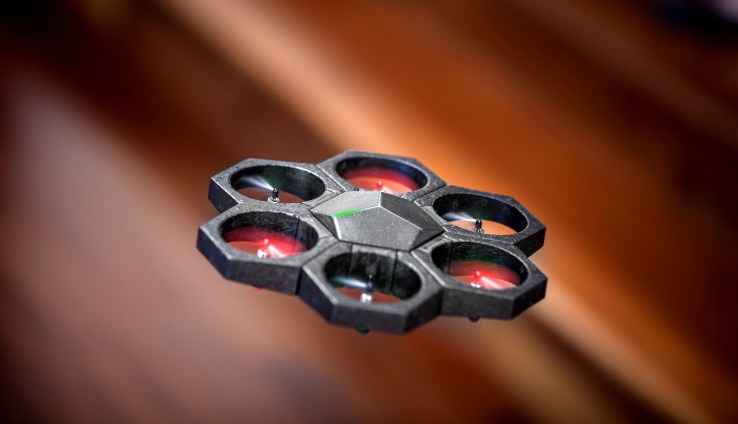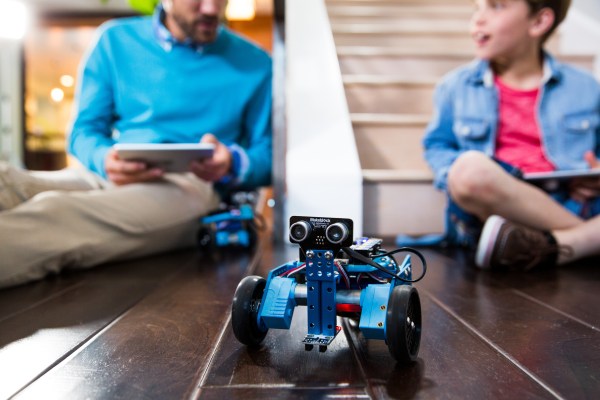Remember when kids could simply play with their toys? They still can. But parents are increasingly spending on toys that are chockablock with tech components, and that promise to turn their kids into software developers or robotics engineers. The Toy Industry Association, which held its International Toy Fair in New York last month, has even identified robotics-education as a major trend for the market in 2017.
Now, a Shenzhen-based startup called Makeblock has raised $30 million in Series B venture funding to serve all those parents with programmable robots, and robot-building kits for kids and teens. Makeblock claims it has customers in 140 countries and products being used by educators in 20,000 different schools worldwide today.
The startup’s best-known products include programmable rovers in the mBot series, and the Airblock, a modular toy drone that even beginners can assemble. But the company offers a very wide variety of techie toys, including some that are more whimsical. For example, its Music Robot Kit includes a xylophone, and a motorized hammer. If built and programmed successfully, it can play a certain score, or users can bang out notes from a remote PC keyboard.

The Airblock drone kit was designed to help beginners get into aerial robotics.
Makeblock uses a graphical programming environment to turn code “writing” into something of a game. Beginners never have to write and edit code to issue commands to their robots. They just have to place game pieces on a screen in a certain order.
Evolution Media China and Shenzhen Capital Group led the investment in Makeblock. The capital should help the startup compete against a wide variety of tech toy makers that sell kits and apps which teach kids some programming fundamentals. Competitors include LittleBits, SparkFun, ArcBotics, Flybrix and even the makers of robots that are programmable out of the box like Wonder Workshop and Ozobot.
Makeblock CEO Jasen Wang said he grew up in a village without a lot of money or technology. He personally only touched a computer himself for the first time in college, learning to code relatively late in life. But his passion for technology made him want to bring more young students into the maker movement, which is why he started Makeblock in 2011.
The company plans to use its funding for hiring, new product development, manufacturing and international expansion. Among other things, it plans to open an office in the US. Investors see the possibility for the birth of a “next-generation Lego” in Makeblock, the CEO said.
To boot, mergers and acquisitions have been robust in the “juvenile products” industry in recent years, with toy companies often acquiring teams or businesses to move in markets where they are not already expert. In other words, the prospects for an exit look good even for companies that may not hold out for an IPO on a major exchange.
